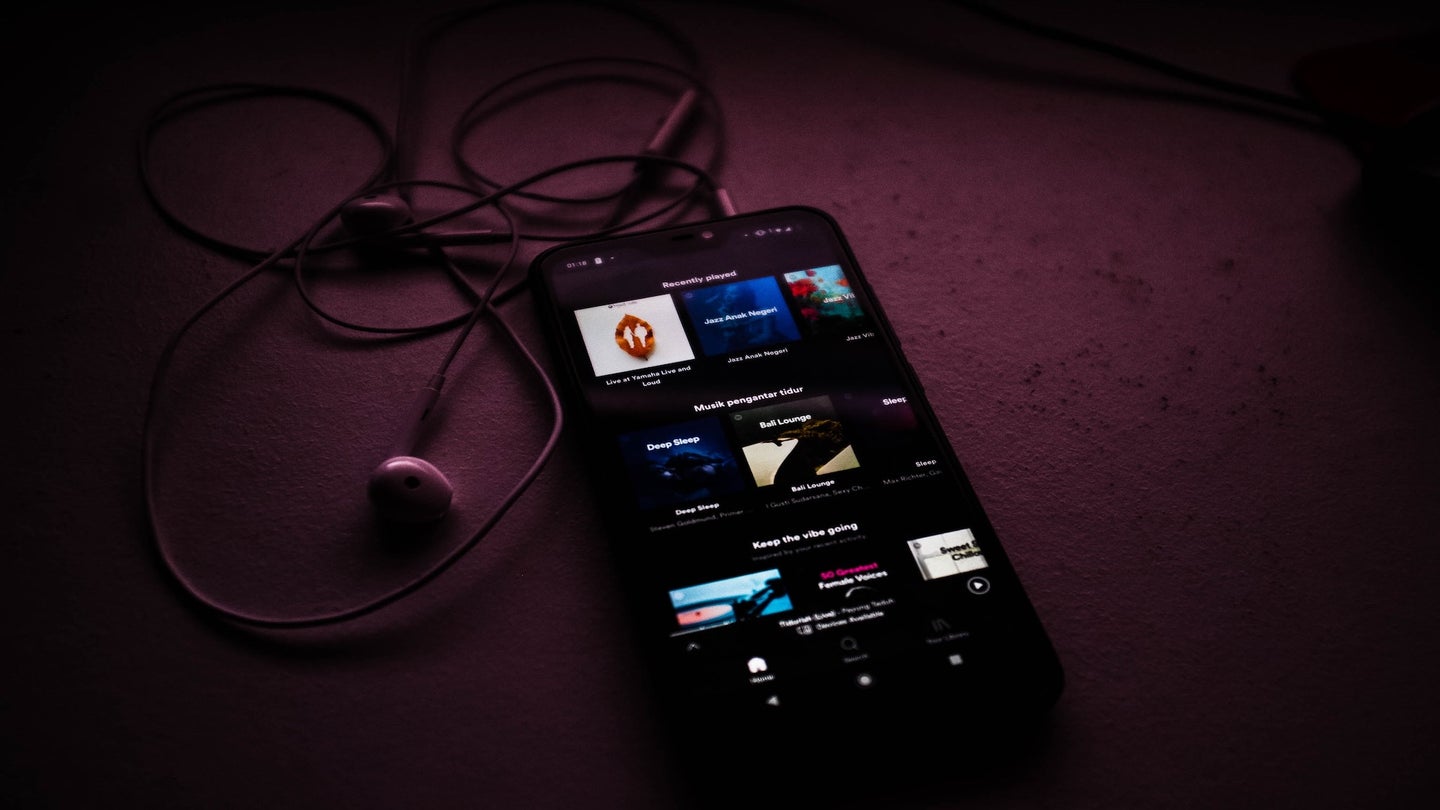
Think about the music and podcasts you listen to, and how they affect your mood. If streaming audio content makes you happier, you’re not alone, and the proof is in the study data Spotify released today.
That finding comes courtesy of 426 free-tier Spotify users who volunteered to wear an electrodermal activity sensor on their palm any time they tuned in over the course of 40 days. The company learned that listening to either podcasts or music improved its users’ moods, and that the activities listeners participate in influenced the type of content they gravitated to.
Although part of Spotify’s motivation for this research is to help advertisers understand how users’ engagement habits with music and podcasts can be used to create a seamless ad experience, it also has interesting implications for scientific studies related to the human experience with sound.
“The project is showing that you can actually study this stuff in the wild. The conditions here were as realistic as you can get considering these were people that were just living their lives,” study co-author Josh McDermott, associate professor in MIT’s Department of Brain and Cognitive Sciences, tells PopSci.
In his view, this opens the door to a new kind of anthropology-like study that can look at how people deal with audio in their lives. “There’s this big cultural shift in the way that we consume music and other audio that really happened over the last decade. It’s just changed the way that people live and probably has a lot of important effects,” McDermott adds. “This is just one way to understand that.”
Key to Spotify’s work was the electrodermal activity sensor, which measures sweat and variations in the electroconductivity of the skin.
“The reason why we went with that specific technology is that we really wanted measure the impact of digital technologies throughout the day, so it was crucial for us to get outside of a lab environment and let our research participants use and interact with Spotify as they would normally do,” says Marion Boeri, a researcher at Spotify.
This research follows a 2022 collaboration with a company called Neuro-Insight that measured users’ brain activity while they listened to Spotify. In the Neuro-Insight project, “we had people come in the lab, and we measured their neural activity when they’re listening to Spotify, which obviously helped us understand engagement that our platform drove, but it was something that was limiting us to that environment,” Boeri adds.
In an effort to break free of that limitation, this time Spotify enlisted research participants from the US and the UK who had free Spotify accounts. Across 14,878 Spotify listening sessions, the company tracked what these people listened to, and asked them to fill out surveys before and after each session about the activity they were doing, their mood, if they remembered the ads they had heard, and if they were interested in the product advertised. Spotify’s researchers took a baseline measure of electrodermal activity before people listened to any audio, and used changes they observed as a metric for engagement.
[Related: Meet Spotify’s new AI DJ]
No matter the audio content, streaming boosted mood across the board.
“You do see that people report their mood improves regardless of what they do. You see this boost in every activity [we measured],” McDermott says. “People are choosing what they consume and it makes them a little bit happier.”
There were also findings that broadly proved some long-suspected trends in audio science, like the fact that our environments dictate the types of audio content we gravitate toward in the moment.
“The musical attributes and the audio attributes that characterize what people are listening to vary a lot depending on what they’re doing,” he notes. For example, people like dancey music if they’re in a social setting, or if they’re being active. And they might like podcasts or wordier songs when they’re on a walk by themselves. “This is the kind of thing people have suspected intuitively for a long time, but it’s never been demonstrated,” McDermott says. “This was really the first time anybody had access to that.”
The post Spotify wants to understand your body on music appeared first on Popular Science.
Articles may contain affiliate links which enable us to share in the revenue of any purchases made.
from Popular Science https://ift.tt/21kJYzT




0 Comments